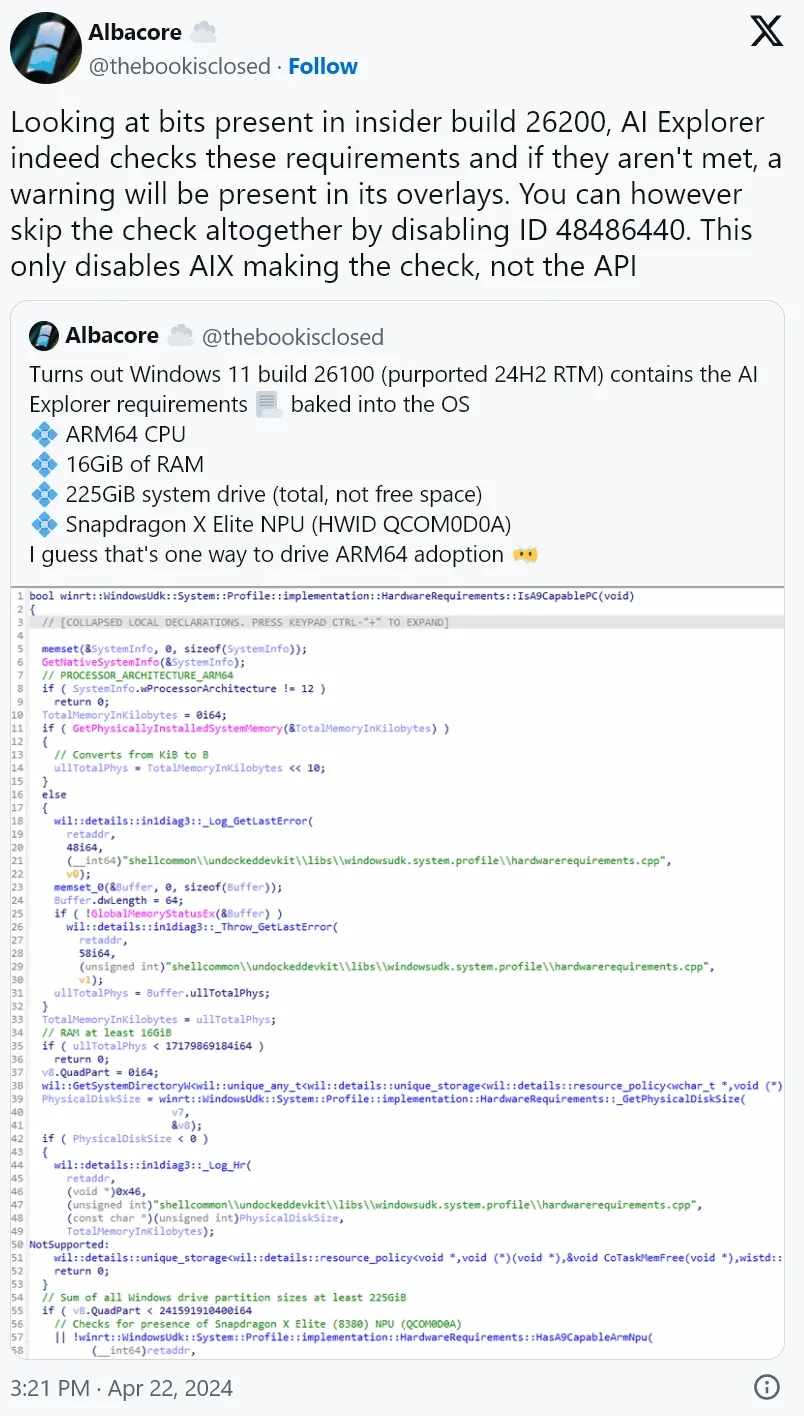Furthermore, the inclusion of a DirectX AI Super Resolution feature in the forthcoming build points to enhanced graphics performance capabilities, leveraging AI to improve image and video quality within applications. This move aligns with Microsoft's broader strategy to integrate more sophisticated AI technologies into its consumer products.
Albacore's analysis also uncovered that the system would check for these AI capabilities upon installation or upgrade to the new build. Interestingly, there was a method found to bypass this check in the Release to Manufacturing (RTM) build by disabling a specific ID code, suggesting that while Microsoft is imposing these requirements, there may still be ways for users to work around them.
This technical requirement comes at a time when Microsoft faces critical feedback from the tech community regarding other aspects of Windows 11, such as unsolicited advertisements in the Start Menu and restrictions on UI customizations. The performance of the Start Menu itself has been another point of contention, highlighted by criticisms from a former Microsoft developer.
As the release of Windows 11 24H2 approaches, it remains to be seen how these hardware checks will affect the overall user experience and system performance, especially for those using older or less capable hardware. Additionally, the response from the Windows user base to these new AI features and system requirements will likely influence future development and update strategies at Microsoft, particularly as the company continues to navigate the balance between innovation and user accessibility.
Source: tomshardware


